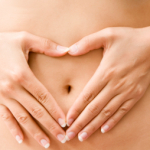 Irritable bowel syndrome, or IBS as it is known, appears to be a very common problem. It is the name given to a functional disorder of the bowel – one that does not work properly – or one that is ‘irritated’. It is a classification for a number of irksome conditions with similar symptoms that seem difficult to diagnose and impossible to treat, such as spastic colon, mucous colitis or non-inflammatory bowel disease. It affects 1:10 people, is not life threatening, does not cause cancer but it can be very debilitating.
Irritable bowel syndrome, or IBS as it is known, appears to be a very common problem. It is the name given to a functional disorder of the bowel – one that does not work properly – or one that is ‘irritated’. It is a classification for a number of irksome conditions with similar symptoms that seem difficult to diagnose and impossible to treat, such as spastic colon, mucous colitis or non-inflammatory bowel disease. It affects 1:10 people, is not life threatening, does not cause cancer but it can be very debilitating.
So, what causes IBS? Well, a host of things may contribute to the problem.
1. Diet.
A diet of processed foods, sugar, caffeine and fried foods is not the best for your digestive system or your health. Sugar causes inflammation and puts your immune system to sleep for hours, so toxins are allowed to accumulate making you feel unwell.
2. Food sensitivities.
It may be that you have some food sensitivities. Most of us have a sensitivity to something, but if we are healthy, have no stresses and life is great, our bodies will cope. The minute our immune system becomes compromised and we become stressed, we start to react to foods, and usually those foods that we eat on a regular basis.
To help you work out which food may be causing you problems you can keep a food diary to see if your reactions tend to always start after a certain food, or you can try an elimination diet and then introducing one food at a time. On the other hand having a Vega test for food sensitivities can give you immediate results.
3. Parasites.
If you have had food poisoning or been abroad and suffered bowel problems it may be that you have parasites. These parasites can live within the bowel for years.
Parasites, by definition, live off other living things. Those that infest our bodies not only live off the nutrients in the food that we eat but they actually live off our tissues stealing our energy, making us feel weak. They secrete toxins into our blood stream that circulate, and often cause damage. Many people do not realise that they have them for some time, and they can often be very difficult for the doctors to diagnose, however there are herbal remedies that can help to eliminate them.
4. Fungal infection.
Yeast and mould are fungus, and there are over 200 that may live within the body. Small amounts of these organisms are normally well tolerated if you have a healthy immune system. However if the immunity is compromised in any way the body and especially the intestines may become susceptible to an overgrowth. Antibiotics, steroids and the contraceptive pill all compromise the immune system and therefore upset the bowel flora and kill off good as well as bad bacteria. This allows fungus to grow which results in a yeast infection. It is important to take probiotics to put the good bacteria back into the gut and to take an anti fungal remedy to remove the over growth.
5. Leaky Gut syndrome.
When the lining of the gut becomes inflamed it is rather like a sieve where the holes become large and allow bacteria, toxins and food to leak through into the body.
An inflamed gut does not absorb food and nutrients properly and therefore fatigue and bloating occurs. The detoxification pathways are compromised resulting in chemical sensitivities. The leakage of toxins into the body upsets the liver, which then finds it difficult to handle everyday chemicals and then the protective coating is adversely affected and the body is not able to ward of bacteria, viruses, yeast and parasites. The cycle begins again and it becomes a vicious circle.
There are good supplements tht will help to line the gut wall and improve the immune system within the gut.
6. Acid/Alkaline balance.
It is so important to keep your body as alkaline as possible. In your digestive system the stomach is extremely acid in order to start the digestion of proteins, but the rest of the digestive tract is supposed to be alkaline and the pancreatic enzymes will only work in an alkaline medium.
If there is an acid/alkaline imbalance, it can cause indigestion, heartburn and bloating and usually soon after eating. Eating lots and lots of green vegetables will help to keep the gut alkaline and there are good supplements to help as well.
7. Stress.
Many people say to me that their flare-ups are caused by stress. Stress causes chemical changes in the brain which act on the nerves in the colon. The intestines will contract or go into spasm too fast or too slow and it may in turn influence motility (the propelling of contents through the gut).
Deep relaxation is a great way to help with stress and hypnotherapy can get you into that state very well.
